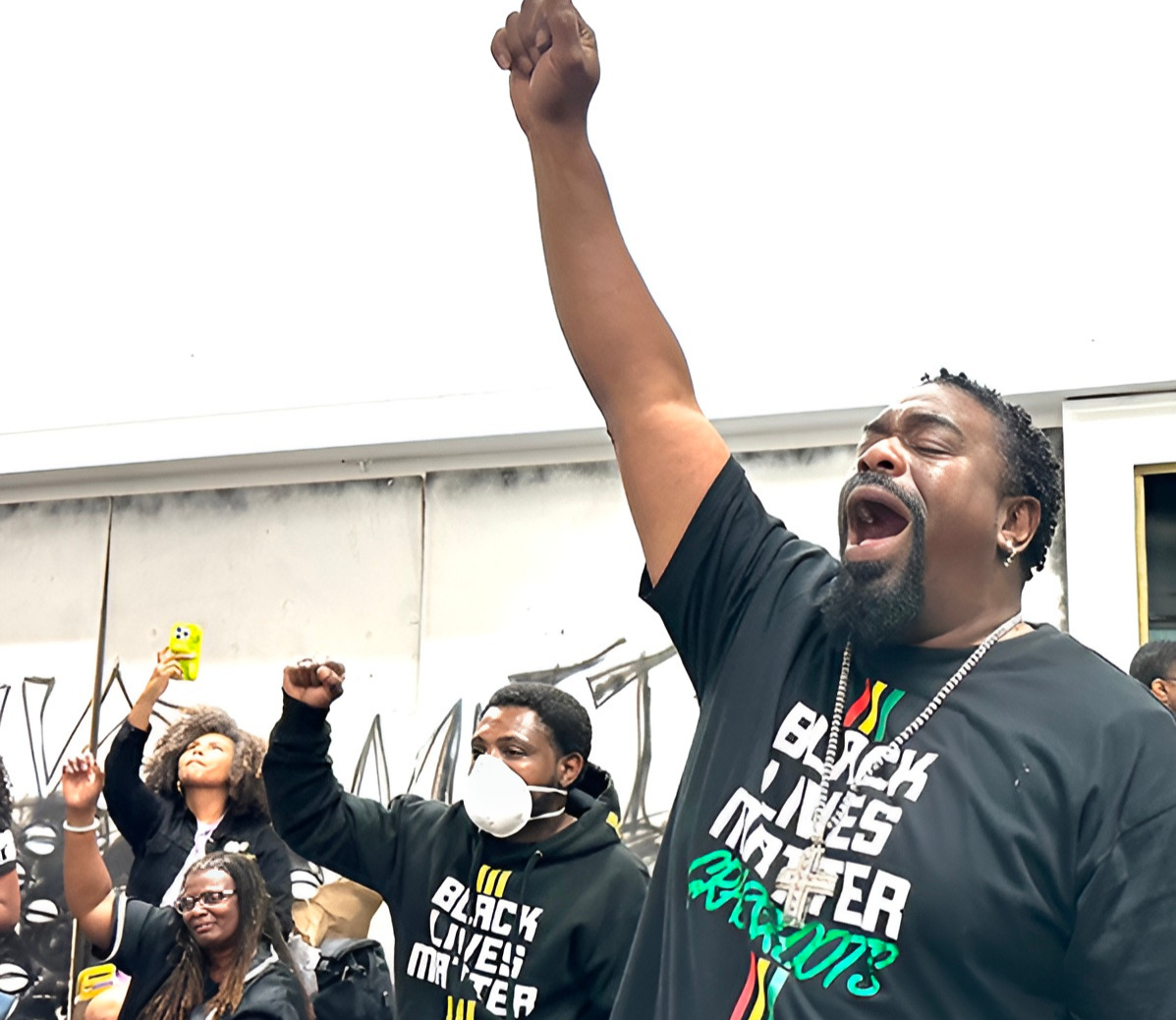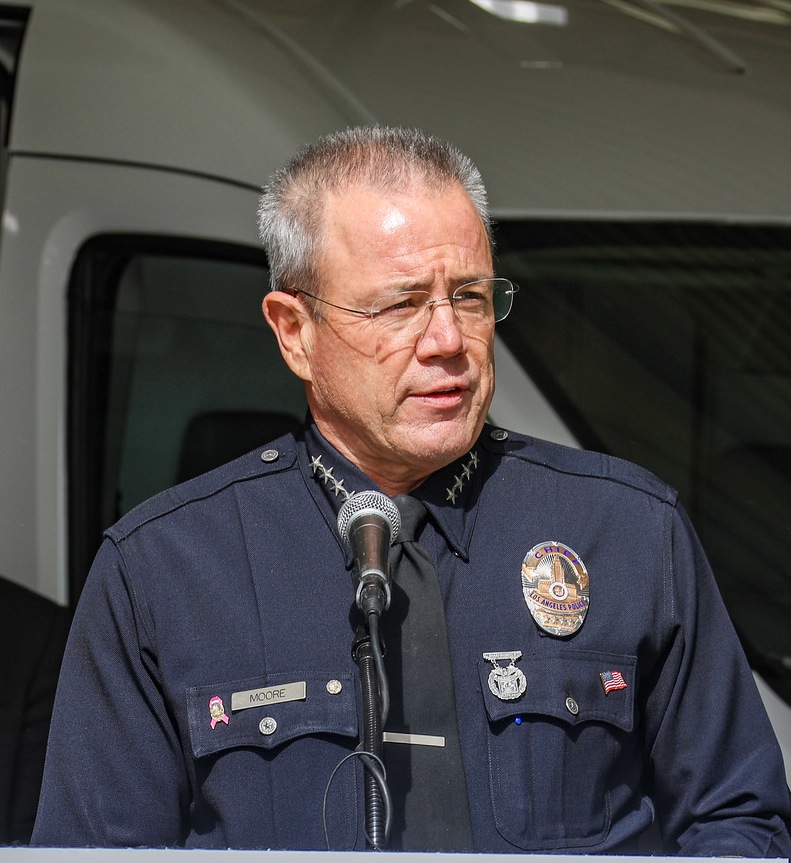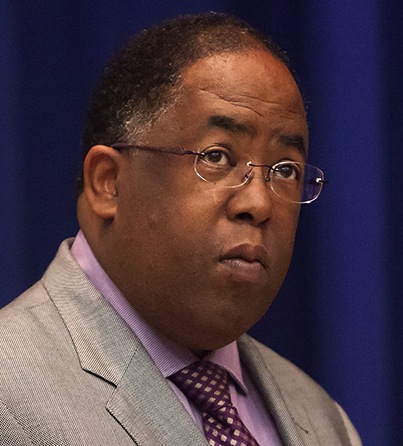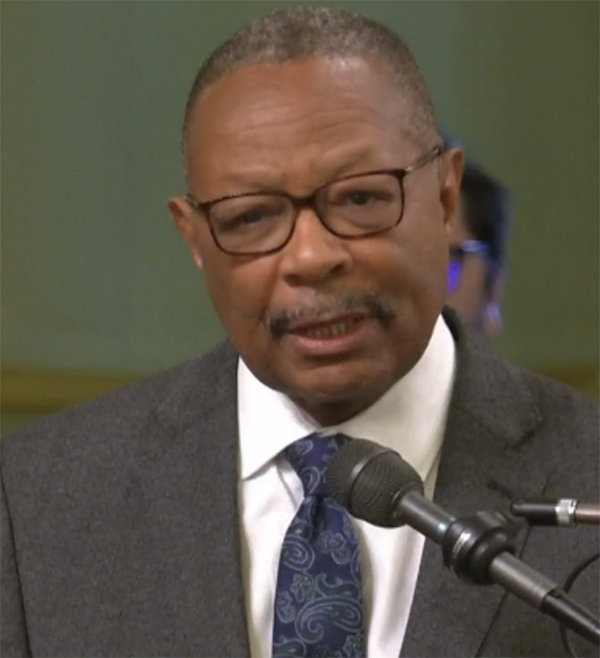Leimert Park draws record Black Lives Matter crowd, spotlights Wakiesha’s Law

LEIMERT PARK — Twelve years after Black Lives Matter was born, Los Angeles remains at the center of its most enduring demand: that Black families deserve justice — and that Black mothers will not be silenced.
From July 11-13, Black Lives Matter-L.A. hosted a weekend meeting at the Center for Black Power, with workshops, reflections and strategy sessions. For those gathered, the anniversary wasn’t just a memorial. It was a political checkpoint — and a reminder that there is still work that needs to be done.
“Black Lives Matter Grassroots is Black Lives Matter,” said Melina Abdullah, co-founder of Black Lives Matter-L.A. July 11. “Even when the cameras turn away, the work continues.”
Though the group has spread nationwide with 51 chapters throughout the country, it still remains in many ways insular.
“Who keeps us safe?” Abdullah asked the crowd July 11. The answer, shouted back in unison: “We keep us safe.”
Much of that work today centers around legislation born from local grief. Wakiesha Wilson, a 36-year-old Black woman, died in police custody in 2016. Her mother, Lisa Hines, never received a call. For four days, the family searched jails and hospitals. When they finally reached someone, it was a coroner who answered the phone.
This year, Black Lives Matter, alongside Assemblyman Isaac Bryan, D-Culver City, helped push Assembly Bill 1269, also known as Wakiesha’s Law, through the state Assembly and into the Senate Public Safety Committee. If passed, the bill would require that families be notified within 24 hours if a loved one is killed or seriously harmed while in custody.
“It’s the first state-level legislation we’ve helped write in a Black woman’s name,” Abdullah said. “And we pray it becomes law with urgency.”
But while the California Legislature moves, mothers across the country say they’re still living in the shadow of the same silence that surrounded Wilson’s death.
Erica Woods, a mother from Atlanta, recalled the night her 22-year-old son, Quandavier Hicks, was shot and killed by police in Cincinnati.
Officers claimed he pointed a gun at them. Witnesses said his hands were up. Woods wasn’t notified by the police. She found out from a Facebook post.
“I had to rally just to identify my son,” she said.
Hicks’ body was not released for three days. He was ultimately cremated, not by choice, but out of financial necessity. A civil suit was filed. The case has stalled in federal court since 2019.
For Deanna Joseph, whose 14-year-old son Andrew Joseph III was killed after being ejected from a Florida state fair in 2014, the delays lasted even longer. Deputies left young Joseph on the side of a highway known to be deadly. He was struck by a car and killed. It took nearly nine years of legal battles before a jury awarded her family $15 million. Still, Joseph says justice remains out of reach.
“We were forced into this assignment,” Deanna Joseph said. “And now we’re showing other families how to fight.”
Even protest has come at a cost. Tracy Cole, the mother of Alvin Cole — killed by police in Wauwatosa, Wisconsin — was beaten and arrested by U.S. Marshals on the night the district attorney declined to file charges. Her daughter says officers dragged her mother out of the car by her braids and struck her repeatedly with a baton. Her phone was later returned — with all media content deleted.
“They set an illegal curfew,” the daughter said. “When 6:59 hit, they came from every direction.”
At the heart of each story is a familiar pattern: no early notification, dehumanizing narratives, erased evidence and long court battles designed to wear families down. The mothers who spoke said they’ve learned from each other —many crediting Black Lives Matter as their first source of organizing support.
“Los Angeles is where it started, and it’s where a lot of us found our voices,” Joseph said.
In the 12 years since Black Lives Matter was founded in the wake of a Florida jury verdict that found George Zimmerman not guilty in the shooting death of 17-year-old Trayvon Martin, the organization has grown. Members from other chapters flew into Los Angeles for the three-day anniversary event from Atlanta, Boston, Detroit, New Orleans, Memphis, Phoenix, Tampa, Milwaukee, Minneapolis, Buffalo, Charleston, South Carolina; Hartford, Connecticut; Gary, Indiana; Kalamazoo, Michigan; Saratoga Springs, New York, and Richmond, Virginia. Two members of the Stockholm, Sweden, chapter also attended.
“This is the largest gathering of members that Black Lives Matter has ever had,” Abdullah said, adding that there are now 51 chapters nationwide.
Over the years, Black Lives Matter has protested the deaths of Mike Brown, Tamir Rice, George Floyd, and countless other Blacks who were fatally shot by police.
Abdullah said the movement’s work has taken on new urgency as the Trump administration attacks issues and policies affecting members of the Black community.
“I think the world hasn’t seen this level of fascism and unmasked racism,” Abdullah said.
It hasn’t come without controversy, both inside and outside the organization.
Abdullah addressed a financial controversy that saw several Black Lives Matter Los Angeles members purchase a community building used for mutual aid and youth programs.
Known as the BLM Global Network Foundation that oversaw fundraising and donations, the members bought what Abdullah called a “$6 million mansion” in Studio City.
Black Lives Matter accused the foundation of shutting local chapters out of resources and decision-making, and sued. It attended with a split into two entities, Black Lives Matter Grassroots — those doing work on the ground —and the foundation.
“Families of those who have been killed by police and white supremacy have been blocked from being able to ever use or set foot inside that house,” she said, adding that Black Lives Matter Grassroots leaders recently visited the property to demand accountability and the return of resources.
“We stood outside with at least six or seven family members and said, return the money, return the resources to the movement so that we can use it for the good of Black liberation.”
Abdullah said that repeated attempts to speak directly with foundation leaders have been met with silence or legal counteractions.
Speakers at the closing event July 13 urged members to keep pushing for reparations and to decry the continued police shootings of unarmed Blacks that continue to occur across the country.
“Less than a week ago, a Black man was killed by police 10 blocks from here,” said Black Lives Matter member James Tullos. “We must keep fighting against police brutality and injustice.”
A.J. Jackson, an organizer for five years, urged everyone in attendance to keep fighting.
“When facism raises its head, we have to get organized and serious,” he said. “We can’t just get tired. We must continue to build and maximize ourselves.”
Also attending the anniversary was Lawrence West, a Black Lives Matter organizer from Virginia who was instrumental in helping to remove the statue of Confederate Gen. Robert E. Lee.
“We waged an occupation against the statue for nearly two years,” he said. “The Virginia Supreme Court voted to allow the monument to come down. The statue was removed on September 8, 2021.”
But local families say the fight isn’t over. For all its symbolic wins, Los Angeles remains the city where no officer was charged in Wakiesha Wilson’s death. It’s also where new public safety investments from the mayor’s office have yet to be measured by families directly impacted by police violence.
That idea — community safety, led by community members — is at the core of what Blacks Lives Matter calls the next phase of the movement. It’s less about protest, more about infrastructure: passing legislation, training family advocates and protecting memory through public documentation.
As the July 11 convening closed, participants were handed reports, T-shirts, and folders marked with the group’s national action strategy. But the strongest resource in the room was the mothers themselves — many of whom never planned to be here, and now lead without title or salary.
“We’ve been to court. We’ve been to the morgue. We’ve been to the Capitol,” Woods, the mother of Quandavier Hicks said. “We’re still here.”
For Los Angeles, the next 12 years may look different. The hashtags may slow. The crowds may shrink. But the mothers? They’re not going anywhere.
“We’re not done,” Abdullah said. “L.A. is still leading.”
Stephen Oduntan and Shirley Hawkins are freelance reporters for Wave Newspapers





